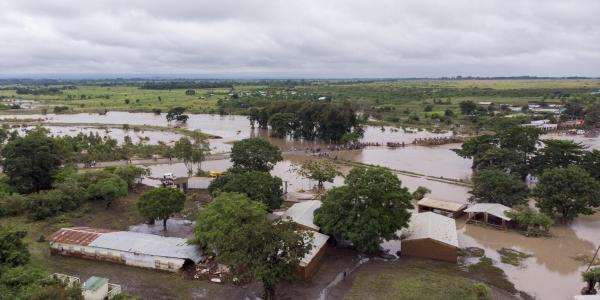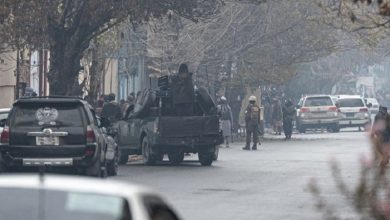Following Tropical Cyclone Freddy, which has ravaged both countries for the second time in less than a month, a potential increase in cholera cases poses a threat to millions of children in Malawi and Mozambique.
The cyclone’s destruction and flooding have increased the serious vulnerability of children and families in the countries, which are further harmed by a lack of water, hygiene, health, and sanitation systems.
According to Mohamed M. Malick Fall, UNICEF Regional Director for Eastern and Southern Africa, “children are the most vulnerable in the face of crisis and chaos.” The effects of Cyclone Freddy have been devastating. In Malawi and Mozambique, a lot of families have lost their lives, leaving them with very little and putting children and the most vulnerable in particular in great danger. In order to meet the immediate requirements of children and their families, UNICEF collaborates round-the-clock with partners and authorities.
Flooding and damage from the cyclone in Malawi and Mozambique have killed people, destroyed infrastructure and social services, and caused people to be displaced. They have also made it harder to get health care and other basic services, which will almost certainly make the cholera outbreaks in the two countries worse. Malawi and Mozambique were among the countries most severely affected by the cholera outbreak prior to the cyclone. This year alone, there have been over 68,000 cases in 11 countries in the eastern and southern regions of Africa.
Mozambique has been confronting a cholera episode since September 2022, with affirmed cases in 35 locale across seven territories, and with more probable likewise impacted. Nearly 10,000 cases had been reported as of March 18, 2023, more than tripling the number of cases reported since the beginning of February. Two million people in Mozambique’s northern region are in need of humanitarian assistance, and nationwide polio vaccination efforts are ongoing. At the same time, Mozambique is responding to multiple competing humanitarian crises. Freddy made landfall twice in Mozambique: once toward the end of February in the central province of Inhambane and once on March 12 in the more northern province of Zambezia.
After moving inland, the cyclone made a severe impact on southern Malawi, causing irreparable harm to roads, infrastructure, homes, businesses, and health centers in the affected areas—including cholera treatment centers and schools. Over 1,660 people have already lost their lives to cholera. Children are bearing the brunt of this crisis because of the ongoing annual lean season, during which millions of Malawians are anticipated to be food insecure. Malawi is likely to be affected by worse climate-induced risks like stronger storms and droughts as the planet warms. There are currently an estimated 4.8 million needy children. Over 62,000 children under the age of five are anticipated to be severely malnourished by the end of March, and almost a quarter of a million children under the age of five are anticipated to be acutely malnourished. A bout of cholera could be the end of thousands of children in Malawi because severely malnourished children are 11 times more likely to die from the disease than well-nourished children.
In both Malawi and Mozambique, UNICEF focuses on acquiring essential basic supplies and ensuring that people have access to nutritious food and clean water; supplies and promotion of hygiene; tents; emergency toilets and medical supplies; services, including education; and protection from potential harm and psychosocial support. UNICEF is supporting aerial mapping in six districts of Malawi in conjunction with drone operators to assess the extent of damage and flooding in difficult-to-access areas and to aid in search and rescue efforts.
To respond to the effects of flooding and cholera on children and families in the region, UNICEF is urgently requesting 155 million US dollars to provide lifesaving supplies, services, and technical support in water, sanitation, and hygiene; wellbeing and HIV; education; nutrition; safeguarding children; and social security, which includes social behavior modification interventions that are incorporated into all sectors.
UNICEF is also focusing on creating systems that can withstand future shocks in order to lessen the impact of the climate crisis on children in the region.
“UNICEF is collaborating with partners and local communities to construct district and community-level systems that are more able to withstand the effects of the climate crisis. Fall continued, “Our work in Mozambique to construct schools that are climate-resilient and able to withstand winds of cyclone force is one example.” Despite the fact that Cyclone Freddy was a historic storm, we are aware that the region will likely experience additional record-breaking storms due to climate change. Even as we recover from Freddy’s impact, we must do so with an eye toward developing future resilience.





